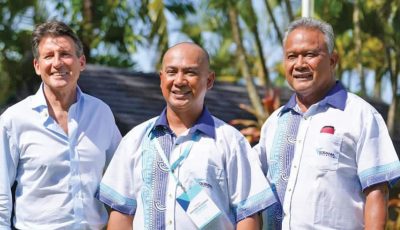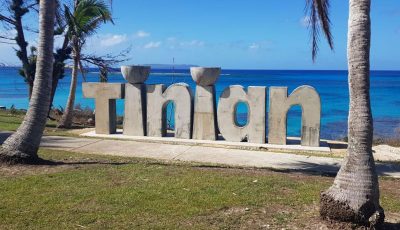The CNMI’s non-performing economy
First of a two-part series
Aside from the issue of competency in commonwealth government leadership, a second major issue confronting the people of the CNMI is the Commonwealth’s non-performing economy. The CNMI economy has been stagnant since 2006, soon after the departure of the garment industry the year before. And as we know, no governmental system—whether national, state or local—could operate for a long time without a sound economy.
What has sustained the CNMI financially over the past 15 years or so have been the millions and millions of dollars in federal financial assistance, aid, and grant monies that we have received and have been receiving from the federal government, especially during the past five years. They include, among the many federal grant monies received, the substantial federal fundings from ARPA, PUA, and FEMA. Absent such federal financial aid and assistance, the CNMI as a self-governing political entity would very likely have been bankrupt by now.
The best evidence we have regarding the CNMI’s non-performing economy has been the steep decline in the amount of locally generated revenues that the CNMI Legislature appropriated for CNMI government operations for each of the past three fiscal years: FY 2020, FY 2021, and FY 2022. The annual amount of locally generated tax revenue appropriated by the Legislature for government operations for each of those three years dipped to around $110 million, a far cry from the annual appropriations budget of roughly $250 million during the mid-1990s.
There are, of course, several major shortcomings that make it difficult for the CNMI to develop and maintain a sound and productive economy. First, unlike the much larger and more-developed countries in the Asia-Pacific Region, the CNMI is very small in comparison, both in terms of population and in terms of land area. Thus, for the CNMI to develop and grow its small, insular economy, it literally has to piggyback on the economic coattails of our economically developed neighboring countries, such as Japan and South Korea and occasionally, but so far unsuccessfully, China.
It is very difficult for the CNMI to develop a sound economy all by itself, not only for the two reasons just noted—our small population and our small land area—but also because there are several other factors adversely affecting our ability to develop and sustain a productive economy. The third factor, of course, is our enormous distance from the continental United States and from the rest of the world.
There is also a fourth but very important factor affecting our ability to develop a successful economy. And that is the absence of local capital that the CNMI needs in order to invest in and start a new industry or to sustain an existing one. In the past, for example, we have had to rely almost entirely on investors from Japan and Korea in order to develop our hotel and visitor industry.
More recently, we have turned to Chinese investors from Macao and Hong Kong to start the Saipan casino industry. Unfortunately, that industry failed not more than five years after the idea for a Saipan casino industry was hatched by our political leaders. The casino industry failed either because of lack of sufficient funding to complete the construction of the casino complex in Garapan or because of the COVID-19 public health pandemic that halted world travel and stymied the world economy for over two years; or both.
In addition, there is also a fifth reason that has hindered economic growth and development of the CNMI. That is, of course, the lack of adequate manpower, both skilled and unskilled workers, that are needed to run and operate any industry that is planning to set up shop in the CNMI. The CNMI does not have enough manpower to service even the existing visitor industry, let alone service any new industry that is introduced to the islands. Indeed, that was one of the reasons why the CNMI’s now defunct garment industry had to transplant to the CNMI about 16,000 garment workers from China in order to operate the garment industry in the CNMI between 1986 and 2004. We had no skilled garment workers in the CNMI to operate such an industry.
CNMI political leaders should, therefore, examine and address these five shortcomings (and maybe a few others, such as the lack of natural resources that we could exploit) that adversely affects and hinders the introduction and development of any new industry in the CNMI. Our political and business leaders must figure out what needs be done to overcome these shortcomings, if the CNMI is to develop a sound economic base and make any potential industry in the CNMI competitive and successful. And we should know by now that only by being competitive with the economies of other places in the Asia-Pacific region could the CNMI develop and sustain its own local economy. When that becomes a reality, only then would we begin to generate the revenue that the CNMI needs to, among other things, operate the Commonwealth government and provide essential public service and employment for the people of the CNMI.
To be continued
Jose S. Dela Cruz (Special to the Saipan Tribune)
Jose S. Dela Cruz is a former chief justice of the CNMI Supreme Court.



























